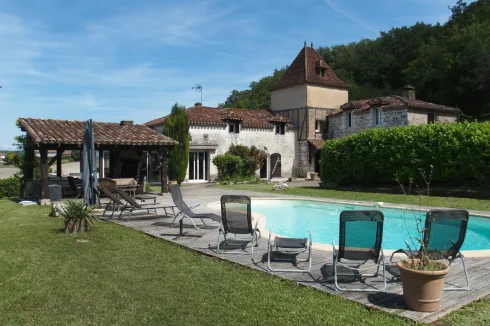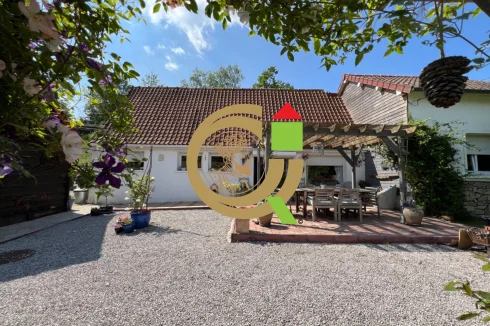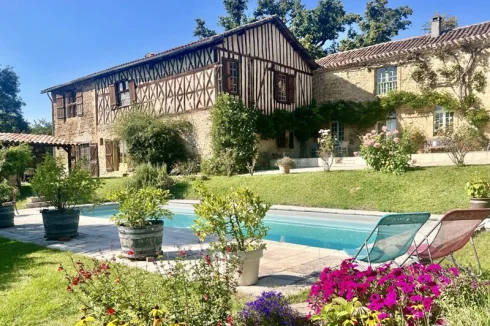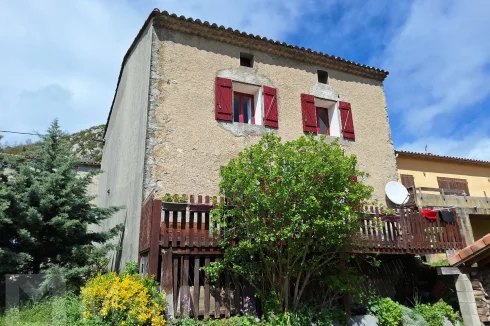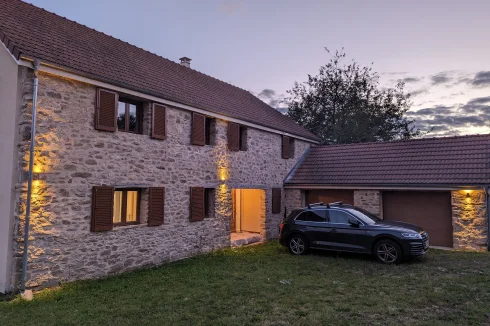Subsidence and Home Insurance in France
Wednesday 02 September 2015
The hot and dry summer in France has been rather unsettling for some home owners, faced with cracks appearing in internal and external walls.
If you own an older property in France the chances are that the foundations on which it sits are fairly insubstantial, something that is not unusual in most countries around the world.
In the vast majority of cases that is unlikely to be a problem, but if the ground is also subject to structural movement due to the expansion and contraction of the soil then it is quite possible cracks will appear in the walls.
Now it does not automatically follow that if this occurs you need to be seriously worried. Cracks occur in many properties during long dry spells and most are only superficial. There is rarely a need for the property to be underpinned.
However, where structural damage does occur you may well need to undertake remedial works.
Unlike the system of house insurance in the UK and many other countries, in France the State intervenes to regulate compensation to insured home owners in the event of major climatic incidents.
Under the 'régime d'indemnisation des catastrophes naturelles', compensation under an insurance policy for a natural disaster only occurs if the government makes an official declaration of catastrophe naturelle for your commune.
Normally, a decision about catastrophe naturelle as a result of extensive flooding (inondation) is fairly straightforward.
Incidents of ground movement due to drought (sécheresse) are sometimes less evident and the whole process for getting compensation can be more difficult. This is because the insurance company will want to satisfy itself that the cause of the cracks in your home were caused by the drought and that the problem is severe enough to warrant remedial works.
Often the initial problems start with the local town hall whose responsibility it is to kick things off by making an application to the prefecture for the commune to be declared catastrophe naturelle. Many local mayors are assiduous in this task, but this is not always the case and if no application is made that is the end of the matter.
So if cracks appear in your house that you believe is due to ground movement arising from a drought, make sure you inform your local mairie so they can compile a dossier of complaints.
Once the application is lodged with the prefecture it should eventually find its way to Paris for consideration. The decision should normally be made within three months of submission of the demand by the prefecture, but the process can take longer if the government considers that the expert investigation needs more time to complete their work.
If the government judges favourably then, and only then, are insurance companies liable to pay compensation for the damage that has been caused.
But you need to be quick, as you only have 10 days from the publication date of the official legal notice (arrête) from the prefecture to make a claim to your insurance company.
If they are doing their job properly your mairie will send a notice around to all residents; others may just post a notice on the town hall.
Once again, therefore, you need to be vigilant or (particularly if it is a second home) request the mairie to notify you when word of the decision is received by them.
Send the claim by recorded delivery - lettre recommandée avec accusé de réception (LRAR) - to ensure the insurance company cannot argue they have not received it.
Needless to say, even if you do manage to get your claim in on time there still remains the need to convince the insurance company that there is a link between the cracks in your house and the drought, and to ensure you receive proper compensation for the damage.
If the problem is a serious one it would be prudent to engage your own architect or engineer from the outset, as they can then can represent you in negotiations with the insurance company.
Some insurance policies allow clients to appoint their own expert, paid for in part or whole by the insurance company itself, but this is normally only triggered where you disagree with the assessment made by the expert witness appointed by the insurer.
The insurance company is required to provide at least partial compensation within two months of submission of the estimate of works, or the declaration of the natural disaster, if this occurs after you submitted the estimate for remedial works.
There is an excess (franchise) of €1520 for ground movement claims, which can rise to €6000, depending on the number of previous catastrophes naturelles of the same nature which have been declared in the commune and whether or not the commune has in place a risk prevention plan (Plan de Prévention des Risques (PPR).
The policy will also only cover the direct consequences of the natural disaster, so the costs, for instance, of temporary accommodation will not be covered by the clause.
Next Article: French Social Charges 2015
Thank you for showing an interest in our News section.
Our News section is no longer being published although our catalogue of articles remains in place.
If you found our News useful, please have a look at France Insider, our subscription based News service with in-depth analysis, or our authoritative Guides to France.
If you require advice and assistance with the purchase of French property and moving to France, then take a look at the France Insider Property Clinic.
